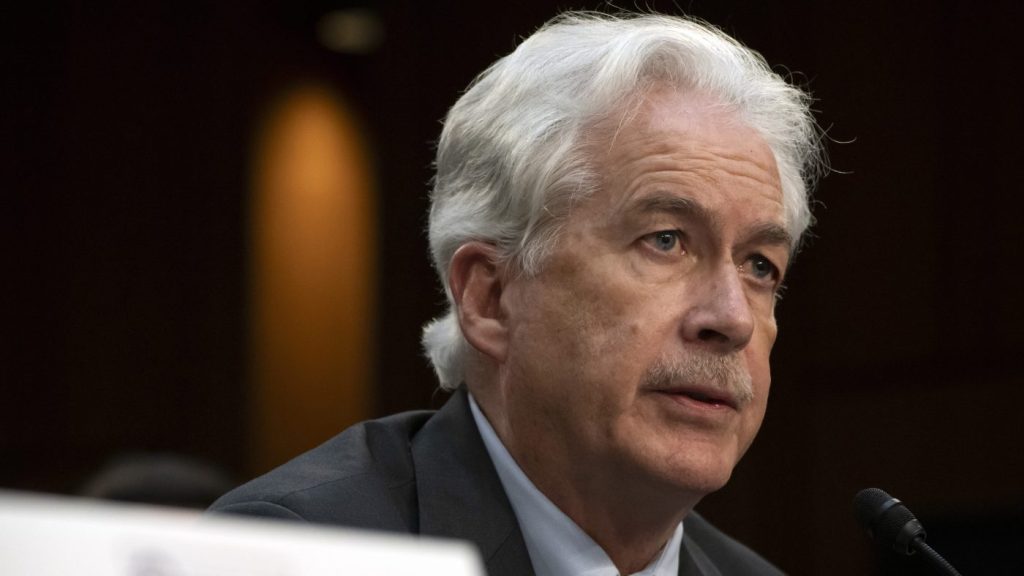CIA Director Bill Burns said on Thursday that Ukraine might not be able to win the war by the end of 2024 without additional funding from the U.S. This is the most specific statement he has made regarding a potential defeat as Kyiv faces a much larger Russian army.
“With the assistance that would come from military aid, both practically and psychologically, Ukrainians are completely capable of holding their own through 2024 and challenging Putin’s belief that time is on his side,” Burns stated on Thursday at an event at the George W. Bush Presidential Center.
Burns emphasized that there is a lot at stake not only for Ukraine, but also for broader European security and that of U.S. allies in the Indo-Pacific.
“Without additional assistance, the situation becomes much more serious, and there is a very real possibility that Ukrainians could be defeated on the battlefield by the end of 2024. This could also put [Russian President Vladimir] Putin in a position where he could essentially dictate the terms of a political settlement,” he continued.
Burns has previously cautioned that without additional allocation from Congress for Ukraine, the embattled nation would have difficulty facing Russian forces. Other Biden administration officials have also cautioned that Ukraine faces a bleak future without more aid from the U.S., but have not yet specified a timeline for a potential Ukrainian defeat.
Maj. Gen. Pat Ryder, press secretary for the Pentagon, stated on Thursday that the U.S. is focused on providing Ukraine with the aid it requires when asked about the CIA director’s remarks.
“Currently, our focus is on ensuring that we can provide Ukraine with the necessary aid,” Ryder told reporters. “The Ukrainians have demonstrated their resilience and bravery under fire. We have no reason to believe that will change. However, we also recognize the critical situation there right now.”
Pressure has been increasing on Congress in recent months to approve additional funding for Ukraine to defend against Russia’s invasion. Disagreements among lawmakers have hindered the passage of aid for over a year, with mainly far-right lawmakers expressing apprehension about continuing to support Ukraine.
In the House, Speaker Mike Johnson (R-La.) revealed a series of foreign aid bills this week that would encompass funding for Ukraine, Israel, allies in the Indo-Pacific, and other national security priorities. Votes on separate portions of the package are anticipated to take place by this weekend.
The bills follow months of delays after Johnson rejected the Senate’s $95 billion foreign aid bill, which would have allocated about $60 billion in aid to Ukraine. Several Republicans have criticized further aid for Ukraine, arguing that U.S. funding should be directed towards domestic issues, including the country’s southern border.
No aid package for Ukraine has been passed by Congress since the end of 2022, and all available funds dried up around the end of 2023, leaving Kyiv in a perilous position with diminishing air defenses and artillery, both of which are crucial in the war.
Russia is currently making advances on the battlefield in eastern Ukraine, having seized the town of Avdiivka in February and now posing a threat to seize Chasiv Yar in the Donetsk region, which could provide Russian forces with a route to larger cities.
The Institute for the Study of War also evaluated this week that Russia is gaining control on the battlefield due to the U.S. aid delay. They forecasted that without further help, the Ukrainians could lose significant territory this year and in 2025.
Burns on Thursday stated that the actions of Congress will communicate a broader message to the U.S.'s enemies and friends.
“This is really a question of whether or not our adversaries understand our reliability and determination and whether our allies and partners that as well,” he said. “So the consequences are enormous right now for what the House of Representatives is considering.”









